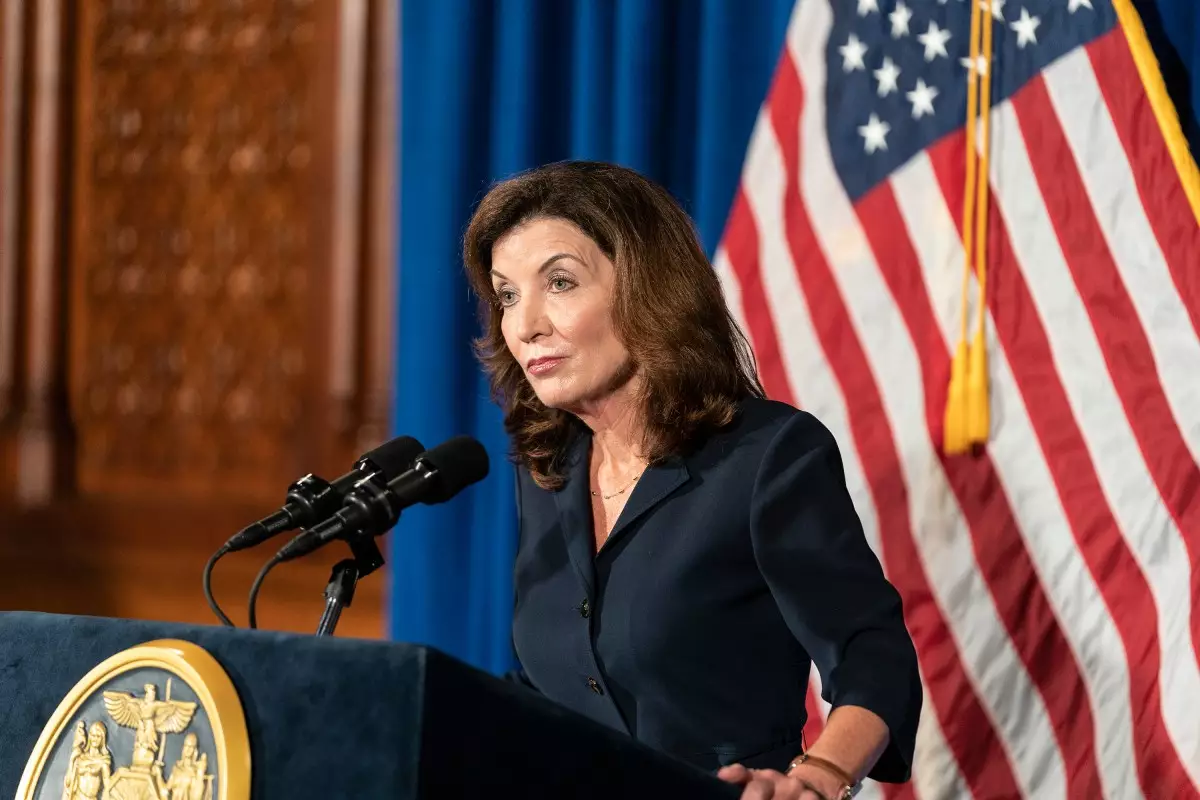New York State has taken a bold step in the realm of artificial intelligence regulation with the recent passage of the RAISE Act. This groundbreaking legislation aims to safeguard against the potential catastrophic consequences of powerful AI technologies developed by major players like OpenAI, Google, and Anthropic. By targeting “frontier AI” models, the RAISE Act establishes a precedent for accountability in a domain that has previously been marked by rapid advancement often at the expense of public safety. The stakes are high, with the bill addressing risks that could lead to mass fatalities or significant economic loss, symbolizing a crucial turning point in how we approach AI governance.
The bill, which marks a significant win for advocates of AI safety, aims to implement America’s first legally mandated transparency standards for AI labs. Unlike previous attempts, including California’s ill-fated SB 1047, the RAISE Act appears to have been constructed with a nuanced understanding of the balance between fostering innovation and ensuring safety. With the co-sponsorship of prominent lawmakers like Senator Andrew Gounardes, who recognizes the rapid evolution of technology, the bill seeks to establish guardrails that are both timely and effective.
The Push for Transparency amid Technological Advancement
One of the most striking aspects of the RAISE Act is its stringent requirements for transparency among leading AI laboratories. Should the bill ultimately pass into law, major AI developers will be compelled to release comprehensive safety and security reports regarding their models. This requirement signals a groundbreaking shift from the current laissez-faire attitude prevalent in the tech industry, encouraging greater responsibility among corporations that wield unprecedented power through their innovations. The emphasis on accountability is particularly poignant, considering the potential scope of disaster that unregulated AI could unleash.
Notably, the legislation specifies that AI labs must report any safety incidents, including unauthorized access or anomalous behaviors associated with their models. By capturing a spectrum of potential safety issues, the RAISE Act aims to mitigate risks before they escalate into headline-making disasters. Critics of the bill, however, have raised concerns that such transparency could disincentivize companies from developing their most advanced modalities in New York, echoing similar objections made against prior legislation, including SB 1047.
Navigating the Landscape of Innovation
One of the main contentions surrounding the RAISE Act relates to its potential impact on innovation. Critics, including figures from established venture capital firms, have decried the bill as an unnecessary regulation that could stifle the United States’ competitive edge in the fast-evolving AI sector. Indeed, the tech community has pushed back, warning that imposing regulatory constraints could drive innovation overseas, leaving American companies vulnerable to competition from less regulated environments.
Despite this apprehension, advocates for the RAISE Act assert that the bill has been thoughtfully crafted to avoid imposing undue burdens on startups or academic researchers. In fact, Senator Gounardes has stressed that the bill seeks to regulate only those companies capable of significant technological impact. The calculus is clear: we don’t want to quash the creativity of small firms while ensuring that powerful entities conduct their operations responsibly.
A Balancing Act in AI Oversight
As the debate continues to unfold, the RAISE Act is not without its detractors, even among the safety-conscious au courant AI community. Some industry insiders, such as co-founder Jack Clark of Anthropic, have expressed trepidation that the act may inadvertently complicate matters for smaller companies. This perspective underscores the complexity of balancing rigorous safety protocols with fostering an ecosystem conducive to innovation. Critics argue that the broad applicability of the bill could inadvertently disadvantage nascent firms struggling to keep pace with compliance demands.
In this climate of uncertainty, the effective implementation of the RAISE Act hinges on its internal mechanisms and the degree of flexibility it can offer. Proponents argue that the relatively light burden aimed at AI companies should mitigate fears of economic backlash, especially given New York’s significant GDP. The hope is that, rather than prompting corporate withdrawal from the state, the bill will foster a culture of responsible innovation that aligns corporate success with public safety.
Looking Ahead: The Future of AI Legislation
While the RAISE Act represents a crucial advancement in the regulation of AI technologies, its final fate rests with New York Governor Kathy Hochul. The potential ramifications of this bill stretch far beyond New York’s borders; they signal a possible shift in the global discourse around AI safety. If enacted, the RAISE Act could pave the way for more widespread adoption of similar regulatory frameworks. As more states and countries grapple with the urgent need for effective oversight, the lessons learned from New York’s approach may set a standard for how we navigate the exhilarating yet perilous landscape of artificial intelligence.
Through robust dialogue among lawmakers, industry leaders, and public advocates, the RAISE Act signifies not merely legislation, but rather a clarion call for tangible and responsible engagement with the transformative technologies unraveling in our society. It reaffirms the notion that as we innovate, we must also prioritize safeguarding the very public that allows these technologies to flourish.

